آیا می دانید استفاده از نخ دندان تاثیری بر سلامت دندانها ندارد؟ + پی نوشت موسسه
ادعای تازه دندانپزشکان انگلیسی درباره “نخ دندان“
انجمن دندانپزشکی انگلیس اعلام کرد: استفاده از نخ دندان تاثیری بر سلامت دندانها ندارد و حتی میتواند اتلاف وقت باشد.
به گزارش ایسنا، بر اساس مطالعه جدید این انجمن اختصاص پنج دقیقه در روز به استفاده از نخ دندان فایدهای ندارد یا تاثیر آن بسیار ناچیز است چرا که شواهد مستندی مبنی بر تاثیرگذاری این شیوه وجود ندارد و هماکنون در آمریکا توصیههای پزشکی برای استفاده از نخ دندان از دستورالعملهای رسمی بهداشتی حذف شده است.
 به گفته متخصصان این انجمن، مطالعات مربوط به کارآیی نخ دندان قابل اعتماد نیستند چون برخی از آنها تنها برای مدت دو هفته انجام گرفته و در این مدت کوتاه، پوسیدگی دندان یا بیماریهای دهان کمتر احتمال دارد، رخ دهد.
به گفته متخصصان این انجمن، مطالعات مربوط به کارآیی نخ دندان قابل اعتماد نیستند چون برخی از آنها تنها برای مدت دو هفته انجام گرفته و در این مدت کوتاه، پوسیدگی دندان یا بیماریهای دهان کمتر احتمال دارد، رخ دهد.
پرفسور “دامئین والمسلی” از انجمن دندانپزشکی انگلیس گفت: استفاده از نخ دندان کمترین تاثیر را دارد. همچنین برای پاکسازی نواحی بین دندانی استفاده از مسواک بین دندانی مفیدتر است. با این حال استفاده از نخ دندان سودمند نیست مگر در شرایطی که فاصله بین دندانها به حدی کم و چسبیده به هم باشد که استفاده از مسواک بین دندانی امکانپذیر نباشد.
اخبار مرتبط مندرج در BBC به همراه لینک خبر: (متن این خبر در انتهای همین مطلب درج شده است.)
should you floss or not? Study says benefits unproven-BBC News
لینک مطلب مرتبط:
This dentist doesn’t floss. And he says you don’t need to either
********************************************************
پی نوشت موسسه پژوهشی درمانی احیای طب جامع ایرانیان:
توصیه می شود بجای استفاده از نخ دندان و اتلاف وقت!! از چوب مسواک استفاده شود.
جهت اطلاع از نحوه استفاده و خواص چوب مسواک به لینک زیر مراجعه نمایید:
چوب مسواک

********************************************************
اخبار مرتبط مندرج در BBC به همراه متن و لینک خبر:
should you floss or not? Study says benefits unproven-BBC News
- 3 August 2016
- From the sectionHealth
For decades dentists have recommended flossing as an essential part of oral hygiene. But how useful is it really
An investigation by the Associated Press has revealed there is insufficient proof to back up this claim
The US Department for Health and Human Services and Agriculture admitted in a letter that the benefits of flossing had never been properly researched
A British dentist at the University of Birmingham, Prof Damien Walmsley, also said there is only “weak evidence” to suggest flossing is beneficial
But in a statement released Tuesday, the American Dental Association (ADA) vigorously defended flossing, saying it was an “essential part of taking care of your teeth and gums”
Why do dentists say flossing is good for you
Many dentists have said flossing can help remove plaque, food build-up between the teeth, reduce the risk of gingivitis, gum disease, and reduce the risk of tooth decay
In its statement the ADA said: “Cleaning between teeth removes plaque that can lead to cavities or gum disease from the areas where a toothbrush can’t reach
“Interdental cleaning is proven to help remove debris between teeth that can contribute to plaque build-up.”
This advice is echoed by the UK’s National Health Service on its website: “Dental floss helps to prevent gum disease by getting rid of pieces of food and plaque from between your teeth.”
What does the evidence say
The studies backing up the ADA’s claims are outdated and only surveyed a small number of people, according to AP
Evaluations of the other studies conducted in the past ten years, found evidence for flossing was “unreliable”, “very low quality” and there was even “a moderate to large potential for bias”
Image copyrightPAImage captionFor years dentists have advised flossing your teeth
One review conducted last year said: “The majority of available studies fail to demonstrate that flossing is generally effective in plaque removal.”
Prof Walmsley, who is also a scientific adviser to the British Dental Association, said: “The difficulty is trying to get good evidence. People are different and large studies are costly to do… until then you can’t really say yes or no.”
He said “more sophisticated trials” were needed
When did recommendations for flossing start
The American Dental Association started promoting flossing in 1908. A dentist in America, Levi Spear Parmly invented flossing in the early 1800s. The first floss was patented in 1874 by which time dentists were recommending the practice
Currently in the US, studies which evaluate the benefits of flossing can be funded and directed by flossing manufacturers. Two major floss producers, Procter & Gamble and Johnson & Johnson have both said that flossing helps to remove plaque
But AP revealed that evidence used in Procter & Gamble’s statement was discredited in 2011. And Johnson & Johnson declined to respond to the news agency after being shown research that refuted their claims
Image copyrightAPImage captionFlossing incorrectly can cause damage to your teeth and gums
Is flossing harmful?
If done improperly, flossing can cause damage to gums, teeth, and dental work, according to the AP investigation
Sometimes, flossing can also cause harmful bacteria to be released into your bloodstream which could lead to an infection
Is cleaning between your teeth beneficial?
Yes. Even sceptics of flossing say cleaning between your teeth is good for you. A Dutch periodontist who has conducted flossing studies says he uses a toothpick
The British Dental Association said: “Small inter-dental brushes are best for cleaning the area in between the teeth, where there is space to do so
“Floss is of little value unless the spaces between your teeth are too tight for the interdental brushes to fit without hurting or causing harm.”
So, should you floss?
US National Institutes of Health dentist Tim Iafolla said when purely looking at the science “it would be appropriate to drop the floss guidelines”
But he also said people should still floss
“It’s low risk, low cost. We know there’s a possibility that it works, so we feel comfortable telling people to go ahead and do it.”
What do other countries say?
Several other countries still recommend flossing: the Argentine Ministry of Health, for instance, says people should “clean between all your teeth everyday with dental floss or a similar product”
And the Australian Dental Association recommends that all people over 11-years-old should floss.
“Flossing … is an essential part of caring for your teeth and gums, and not some kind of ‘nice to have’ added extra.”
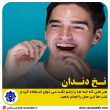
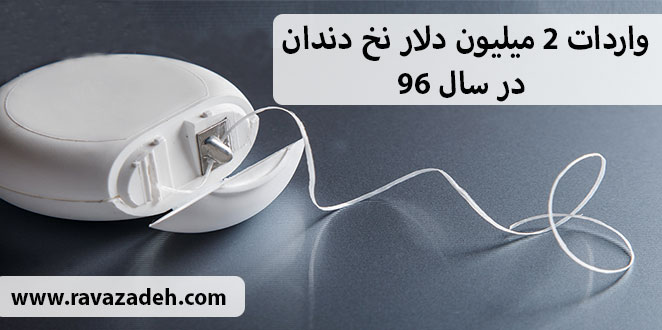
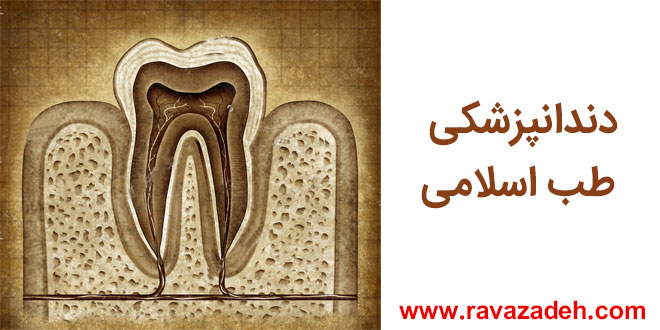
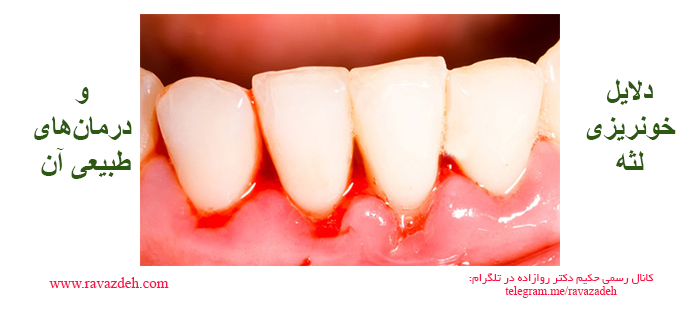

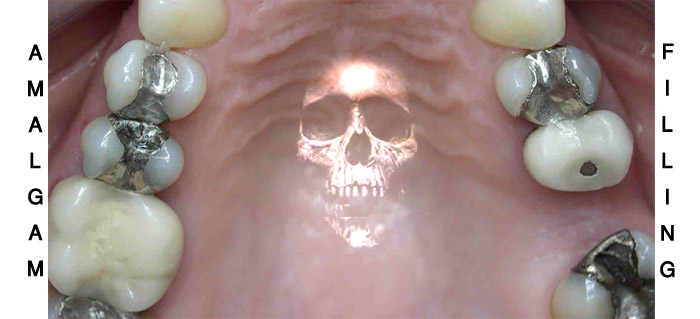
خیلی جالبه خود آقای دكتر توی كتاب پرسش و پاسخشون میگن استفاده از نخ دندان اگر در شب نباشد بلا مانع است و اشكالی نداره ولی سایتشون مطلب میذاره نخ دندون تاثیری نداره!!
باسلام و احترام
استفاده از نخ دندان مهارت زیادی می خواهد و غالباً جزء آسیب به لثه ها حاصلی ندارد.
این مطلب نیز نتیجه یک تحقیق است که کشیدن نخ دندان را سودمند نمی داند.
در پرسش و پاسخ های مندرج در سایت و کتاب پرسش و پاسخ نیز برسودمند بودن استفاده از نخ دندان صحه گذاری نشده است.
گروه مدیریت سایت
سلام خیلی ممنون از سایت خوبتون من اکثر مطالبی ک درباره دندان تو سایت گذاشتین خوندم…من دندونم چند روز پیش عصب کشی کردم ولی بعد از اینکه مطالب سایتو دیدم برای پرکردن دندانم نرفتم چون گفتین ک بامواد سمی و مضر پرمیشه دندان….میخاستم بدونم الان باید چکار کنم دندونم کلن خالیه و وقتی غذا میخورم میره توش ….باید چکارکنم دندانپزشکی ک با مواد قدیمی مثل چینی ک گفتین کجا هس تا مراجعه و دندونم پرکنم یا روش خونگی و درمانی هست برای پرکردن دندون بدون موادی ک الان استفاده میکنن…نمیدونم چکارکنم خیلی اعصابم خورده بعده عصب کشیم دندون درد بیشتری گرفتم ….
باسلام و احترام
به دندانپزشک خود مراجعه نمایید و درخواست کنید دندان شما را با کامپوزیت پر کند و نه با ماده آمالگام.
گروه مدیریت سایت
سلام
در بهداشت دهان برداشت پلاک باکتریایی است که اهمیت دارد. بسیاری از افراد اصول مسواک زدن را نمی دانند و با سرسری مسواک زدن باعث می شوند که پلاک ها باقی بماند و ایجاد مشکل کنند.
نخ دندان هم اصولی داره باید با تکیه بر روی یک دندان وارد شد و با تماس مناسب به صورت حرکت بالا پایین (نه اره ای) از روی هر دو دندان در آن محل پلاک ها (سفیدک ها) را برداشت.
بله اگر به طور نامناسب نخ را وارد کنیم (به سر لثه بکوبیم!!!) و به طور اره ای و نامناسب نخ بکشیم و … باعث آسیب می شود وگرنه اگر اصولی استفاده کنیم آسیبی نمی زند. اون چیزی که آسیب زاست حضور پلاک میکروبی است که باعث تحلیل لثه و سپس تحلیل استخوان حمایت کننده دندان می شود و دندان لق می شود.
خصوصا افرادی که در محل تماس دندان ها ، ترمیم دندانی یا روکش دارند پلاک میکروبی باعث پوسیدگی زیر ترمیم ها می شود.
در این مصاحبه هم احتمالا ایده آل ها را در نظر گرفته یعنی مثلا فرد بهداشت دهانی خوبی داشته باشه و مسواک را درست و اصولی بزنه تا تمام پلاک ها را برداره و شیرینی جات و مواد چسبنده کمی بخوره و …..
اما موی مسواک هیچ وقت در فرد سالم با لثه طبیعی نمیتونه وارد محل بین دندان ها بشه و آنجا رو تمیز کنه
همه دیدیم که بعد از مسواک که نخ دندان می کشیم یک سری سفیدک ها که همان پلاک هستند بین دندان ها باقی مانده خصوصا دندان های عقب که محل تماسشون با همدیگه وسیع تره.
بله خب مثلا مسواک بین دندانی شاید بهتر باشه اما این مسواک رو چه کسی میتونه استفاده کنه؟ کسی که بین دندان هایش فاصله است و یا لثه هایش تحلیل رفته و این مسواک از بین دندانش رد میشه.
وگرنه در فرد با لثه های سالم و طبیعی مسواک بین دندانی اصلا رد نمیشه و فقط نخ دندان چاره کاره
چیزی که در واقعیت می بینیم اینه که متاسفانه اکثر مردم بهداشت دهان و مسواک را درست رعایت نمی کنند و با دیدن این گونه خبرها هم خوش حال میشوند تا با خیال راحت و بدون عذاب وجدان! بیشتر رعایت نکنند!!!
از حکیمی مثل شما انتظار بیشتری میره تا در برخورد با این مسایل طبق مقالات علمی تر (نه مصاحبه) و به طور همه جانبه تر به قضیه نگاه کنید
باتشکر از شما